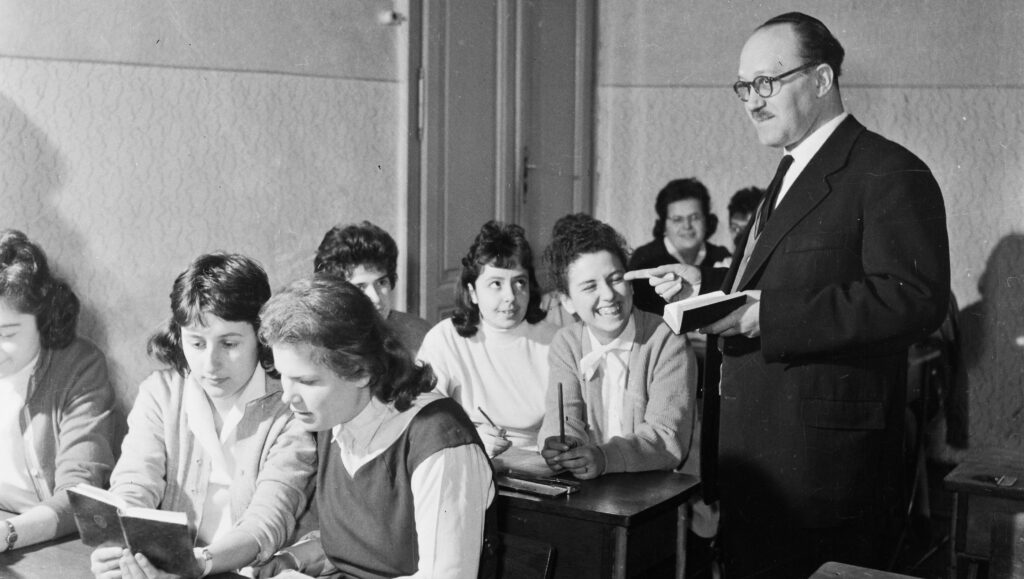As the Israeli Ambassador to Hungary since 2019, Yacov Hadas-Handelsman has personally experienced the disconnect between the often-negative image of Hungary and reality. According to Ambassador Hadas-Handelsman, ‘one cannot build a whole theory on nonexisting facts or facts contradicting reality’.
Yacov Hadas-Handelsman, the current Israeli Ambassador to Hungary, who is returning to Israel after a long career at the Israeli Foreign Ministry, spoke with The Jerusalem Post in a recent interview about the political situation in Hungary, the false views about the country in the international press, and Hungarian support for Israel in its most difficult moments.
Over the past years Hungary has become the most potent ally and defender of Israel in the European Union and other international forums. However, Hungary is usually described as under the rule of an ‘autocratic, anti-liberal, and corrupt government. The country has also been portrayed as antisemitic, although Hungary has been among the safest places in Europe for Jews and Israelis, even since the beginning of the Israel–Hamas War. In October, under the current Hungarian presidency, the EU adopted a firm declaration on member states pledging to combat antisemitism and promote Jewish life in Europe.
The huge contrast between the image of Hungary and reality, according to the Israeli Ambassador to Hungary, incomprehensible. ‘As someone who lived in Hungary, I think many false ideas about Hungary are rooted in ignorance and superficiality. Nothing is perfect in Hungary, too. There is always room for change and improvement. But an image has to reflect a certain reality, not a “reality” that doesn’t exist,’ he elaborated.
‘Many false ideas about Hungary are rooted in ignorance and superficiality’
In the interview Hadas-Handelsman highlighted the discrepancy between Hungary’s false image and reality by mentioning the general elections in April 2022 as an example. Both the American and European media at the time accused Orbán of utilizing a gerrymandering strategy to ensure his victory with a two-thirds majority. ‘However, the fact is that the last time the voting constituencies’ partition was fixed was in 2012,’ clarified the Israeli Ambassador.
‘Orban returned to power in 2010, after eight years in the opposition, winning a two-thirds majority, and he has kept this majority most of the time since then. These claims about gerrymandering were baseless. It doesn’t matter what opinions you have— facts are facts. One cannot build a whole theory on nonexisting facts or facts contradicting reality. But the world has its habits, and you can explain whatever you want. People have opinions and don’t want to be confused by the facts,’
he noted.
In contrast to the incorrect facts circulating worldwide, the Israeli Ambassador to Hungary stressed that Hungary is a democracy and used the victory of the Tisza Party, a recently formed political force, in the European Parliament elections as an example.
‘One of the criteria for democracy is if you can change a ruling party in an election. Go and check what happened in all the elections that took place in recent years. The last elections were on June 9, the municipal ones and for the European Parliament. Just before these elections, a new political party was established, the Tisza Party, headed by Peter Magyar. Magyar was a member of the ruling Fidesz Party and became anti-Orban. Now, he wants to remove Orban from power. His party won almost 30% of the votes in the European election at the expense of the center-left parties…He could be a serious challenger for Orban and his allies in the coming general election 2026. On the municipal level, Fidesz didn’t retake Budapest, the “jewel of the crown,” which they lost to the opposition in 2019. The Organization for Security and Cooperation in Europe, not known to be a staunch supporter of the current Hungarian government, published a report after the last general elections emphasising the freedom of access to voting polls. Nobody tried to influence or threaten the voters. People knew exactly who they voted for and why,’
Yacov Hadas-Handelsman explained.
The Israeli Ambassador to Hungary also denied the baseless accusations of antisemitism against Hungary, telling The Jerusalem Post: ‘Hungary deals with its past. It is not trying to rewrite history or minimise it, while in other corners of Europe, you see attempts to rewrite history. When former Hungarian president János Áder visited Auschwitz in 2017 on International Holocaust Day, he said that it was the biggest Hungarian cemetery in the world because a third of the 1.5 million Jews who were murdered there were Hungarians. Representatives of the Hungarian government have declared at events commemorating the Holocaust that the Hungarians “disappointed and abandoned our Jewish citizens”. One even went as far as to say that Hungary “betrayed [our] Jewish citizens”.’
‘Hungary deals with its past. It is not trying to rewrite history.’
Hadas-Handelsman highlighted the Hungarian government’s involvement in bringing back Jewish life and history in Hungary, which still has one of Europe’s most significant Jewish communities.
‘You see all the money that was and is invested in the renewal or restoration of Jewish life that once was here and will never return —the synagogues, the cemeteries. It is always amazing to see what remote villages Jews were living in. They were part of the general Hungarian human landscape —farmers, merchants, lawyers, doctors. Today, there are no more Jews in those villages, and there will never be Jews there again. But somebody is taking care of the Jewish heritage. Old synagogues were restored and sometimes became museums, cultural centres, and public libraries.’
The Ambassador also emphasized that the current situation in Hungary in the sense of antisemitic incidents is favourable, and highlighted that compared to other places in Europe, Hungary is considered one of Europe’s safest countries, not only for Jews and Israelis. ‘Since the October 7 massacre and the war that followed, Hungary not only blocked several anti-Israel resolutions, which the EU Commission and other member states were pushing. Hungary also rescued Israeli sports, especially soccer, by enabling Israeli teams and clubs to host their international home games in Hungary,’ Hadas-Handelsman recalled.
Israel and Hungary have common interests in different issues and domains, and according to Yacov Hadas-Handelsman, Hungary’s support for Israel is not just about Orbán’s willingness to provoke the EU.
‘Let us not forget the long history, which is relevant to many Israelis of Hungarian origin and their cultural heritage. The fact that hundreds of thousands of Israelis of Hungarian descent live in Israel is essential in both countries. It is clear that the Hungarian support is consequent, and it is across parties. Even within the opposition, I didn’t encounter any reticence toward this support,’ the Ambassador stated in the interview.
‘After October 7, there was an initiative to change the name of Herzl Square in front of Budapest’s main synagogue to the October 7 Square. The government published an order forbidding any pro-Palestinian demonstration. The mayor of Budapest, a leader of the opposition, published a similar order. He said in one of his speeches that the only thing the government and he could agree on was forbidding such demonstrations after what was done to Israel. Israel is sometimes the only uniting issue in Hungary,’ Yacov Hadas-Handelsman concluded.
Related articles:








